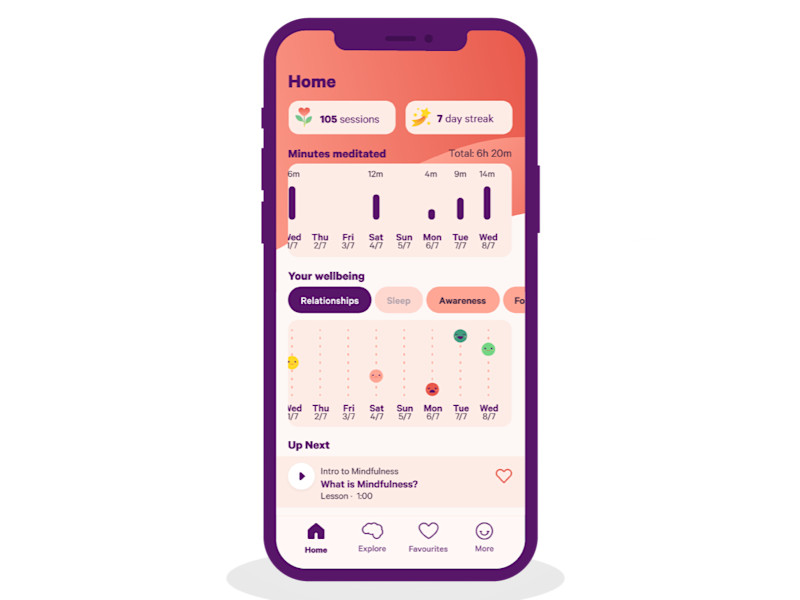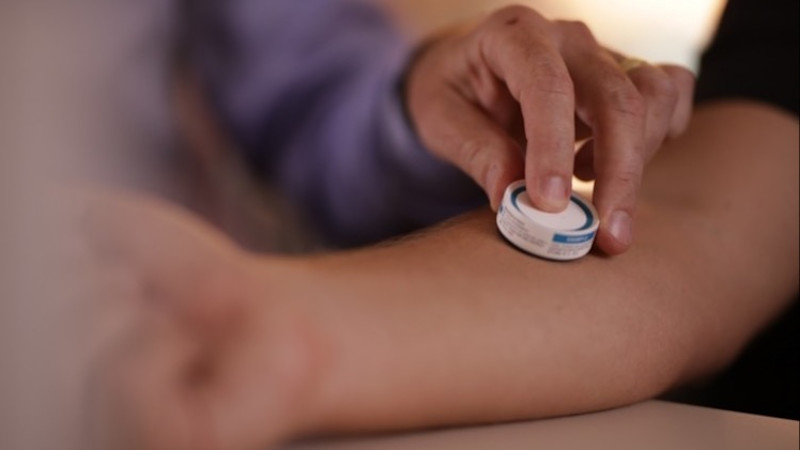- Iterate
- Meet The Team
- Australia’s Digital Health Boom and the Seven Players Driving It
Australia’s Digital Health Boom and the Seven Players Driving It
Table of contents
The recently minted Australian AI Health Alliance has the goal to provide a clearer direction for the development of artificial intelligence-driven healthcare products. Members of the alliance include brands focused on bringing about meaningful change to the way healthcare is delivered to achieve better, more equitable outcomes. Vaccines without injections, at home COVID testing kits, and AI IVF — we look at AU’s digi-health boom and the companies driving it.

Harrison.ai
Sydney-based Harrison.ai first made a name for themselves in their work around in vitro fertilisation (IVF), developing an AI technology that can select the best embryo to increase the likelihood of pregnancy.
Since then, they’ve gone from strength to strength. In 2019, the company took on $29M AUD in investment from powerhouse VC firms Blackbird Ventures, Horizons Ventures and Skip Capital.
The capital helped the company expand outside of IVF and into the applications of AI in radiology. Using its new tool, annalise.ai, radiologists will be able to more efficiently recognise and diagnose diseases in patients.
Not only do these solutions help free up time for radiologists, but there is potential to redeploy them into emergency departments or in primary care to support many of the busy professionals who are looking at these images.
Smiling Mind
Developed in 2012, Smiling Mind has risen up as one of the preeminent meditation apps around the world. As a competitor to the likes of California’s Headspace, Smiling Mind has been particularly focused on introducing meditation practices into schools, and more recently, workplaces.
They might not offer the deep tech solutions that we’re seeing with players like Harrison AI, but Smiling Mind is doing important work in a traditionally underserved area - young people’s mental health. With a staff of 30, Smiling Mind has helped more than seven million young Australians in seeking what they term “preemptive mental health support” — something that in all likelihood has saved stress on the healthcare system down the line.

Ellume
Brisbane-headquartered Ellume has been around for more than a decade and boasts the goal of building “the next generation of digitally enabled diagnostic products,” but it's their at-home coronavirus testing kit that has been stealing all of the headlines recently.
With 96% accuracy, Ellume’s at-home test can give users a COVID result in less than 15 minutes, which has drawn the attention and wallets of many international leaders. Last month, Ellume inked a $231.8M USD contract with the Biden Administration for 8.5 million tests.
Outside of COVID tests, Ellume has focused heavily on bridging the gap between physical diagnostic tools and the digital world, harnessing the technology that most people have in their back pocket with their smartphones. While COVID will continue to pay dividends for the company in the short to medium term, its broader digital diagnostic should play a massive role in the future of world health.
Vaxxas
This list has focused predominantly on software focused companies, but Vaxxas’ bio-med tech is too cool to leave out. The company has developed a product called Nanopatch, a patch that can vaccinate a patient without any need for an injection.
For those who think this all sounds too good to be true, the Nanopatch has thousands of microscopic vaccine-coated dots which pierce the top layer of the skin and painlessly activate the treatment in the patient’s immune system.
In October of last year, Vaxxas signed a $22M USD deal with the United States government to fast track deployment of Nanopatch in the COVID vaccines efforts. In addition to its benefits for user experience, the Nanopatch could cut down the massive pressure for cold storage that comes with current versions of the COVID vaccines.

Health Engine
It’s not AI, and it might not make your toes shake with excitement, but Australian company Health Engine has cemented itself as one of the most important companies in the world of health tech and would be impossible not to include in this list.
HealthEngine helps match patients with healthcare providers through an online booking system that has been used by more than seven million Australians to make more than 30 million online bookings.
Last year, the company was ordered to pay $2.9M for misleading patients in their use of data, but the company has since bounced back. They were recently awarded a federal contract to build out the country’s vaccine booking system, helping patients easily identify and locate clinics in time for the massive national vaccination efforts.
While they have a peppered history, Health Engine is nonetheless one of the central fulcrums for how Australians interact with their digital healthcare, and show all signs of sustaining that lead.
Alcidion
Alcidion does the kind of thing that only makes true and proper sense when you’re working in the healthcare industry. The 21 year-old Adeleide-based company has a whole suite of software offerings to provide a, “clinically relevant environment with digitally enabled care.” In essence, they build the tech that helps the healthcare system go round.
One of its most impressive solutions is the Miya Precision, a tool which uses AI to provide meaningful insights from legacy patient data that would have otherwise gathered mould in an old computer somewhere.
Of all of the companies in the Australian healthcare IT space, Alcidion has among the most globally scalable tools, which was seen recently with their partnership with the UK’s NHS.
If you need more evidence that Alcidion is worth caring about, consider that if you’d put money into the publicly-traded company this time two years ago, that number would have septupled — seven times your initial investment.
Doctors on Demand
Did you really think we were going to do this list without at least one telehealth player?
To distinguish it from many of its competitors, Doctors on Demand offers its product in a business to business model — where companies including Flight Centre and Allianz Partners can white label the Doctors on Demand service to their staff.
In an AFR exclusive, Doctors on Demand claimed they have seen its revenue shoot up by 175 percent over the last six months of 2020, and is aiming to list publicly this year.
Beyond the catchy name, Doctors on Demand is an Australian telehealth provider betting on the fact that people want to avoid the waiting room, COVID or not. Internationally, telehealth has had a moment in the sun, but as Australia starts to move into a world free of the coronavirus, it's unclear how long this moment will last — 2021 will be the big test.
--
The Org is a professional community where transparent companies can show off their team to the world. Join your company here to add yourself to the org chart!
In this article


The ORG helps
you hire great
candidates
Free to use – try today